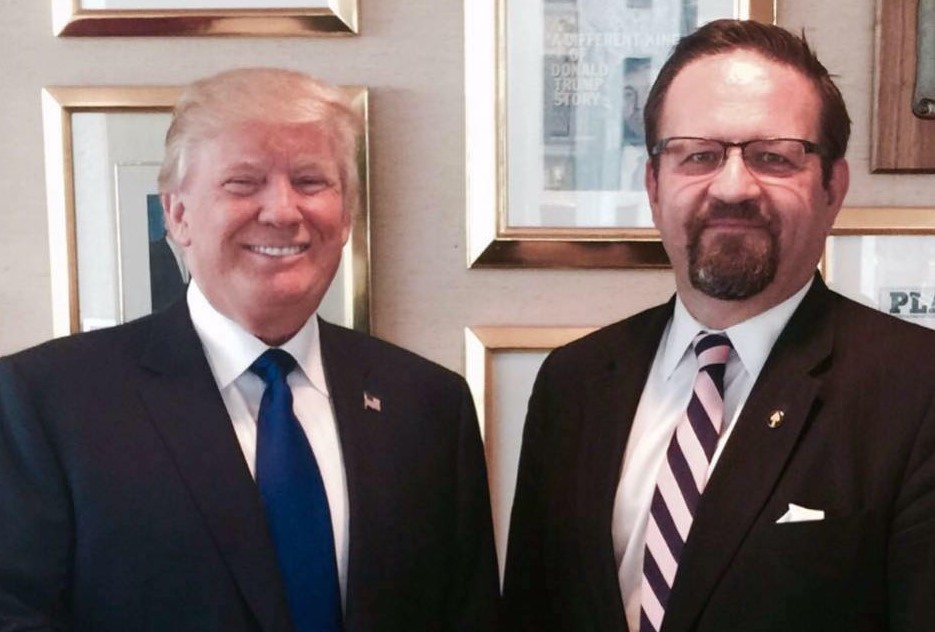FB photo
By
Binoy Kampmark
Counter-terrorism has been a pop field for some decades. As vague as what it purports to counter, it has generated a pundocracy of sorts, guns and mouths for hire across the US imperium and its associate powers.
Much of this resembles the various fictions common during the Cold War: the notion that insurgencies could be defeated from the outside; the teeth chattering idea of a global Communist threat directed with intellectual clarity from Moscow or Beijing. Human minds were, like puttee, pliable before the doctrinaires and ideologues. If you were told how to think, you would behave accordingly.
False rationalism pervades this entire field. And there are few in this area more misguided on this point than Sebastian Gorka, President Donald Trump’s deputy assistant, former Breitbart editor and member of the White House Strategic Initiatives Group created by Stephen Bannon and the president’s son-in-law, Jared Kushner.
The Gorka recipe for defence, spiked with anti-Islam fervour and dislike for misguided eggheads, neatly fits the Trump view of the world, though he remains, unlike his boss, a true ideologue. Fake news, not to mention old-fashioned bias, is repeatedly alleged, and on that score, he is not always wrong. (The assertion that networks can be pristinely objective is a fantastic one that needs debunking).
Where the world of make-believe impresses itself upon Gorka is any rational assessment of the presidency and its meagre achievements so far. Calling them “fabulous”, Gorka repeatedly makes remarks to the extent that reporting on the inner workings of the Trump world bear “almost no resemblance to reality.”[1]
This enables us to then assess what resemblance to reality Gorka assesses when it comes to his pet subject: the Global Jihadi scourge. On several fronts, Gorka fails to supply his audience with any explanation as to whether there is such a global jihadi problem, let alone what form it is meant to take. To do so would naturally entail having to describe a fantasy, even a conceit.
A spate of murderous drive-down spectaculars in European cities instigated by assailants either inspired by Islamic State or some other group with apocalyptic credentials is hardly evidence of a globally coherent world strategy. Had there been a unified leader of Islam, a fact hardly tenable given its various sects and internal contradictions, then assertions of a global jihadi front might hold some water.
Gorka’s Defeating Jihad: The Winnable War reads much like the screeds on modernisation theory churned out during the initial stages of postcolonialism. As long as money, bubble gum and US ideas of liberal capital were filling the nationalist void in the Third World, favour towards communism would be stemmed. Such an argument ignored the obvious point that nationalism was the driving force to begin with, with communism being conscripted to that end.
Similar errors in analysis are made in dealing with the “Global” Jihadi problem. Categories are conflated; entities reduced to a common denominator of world revolution. The attacks of 9/11 were acts of “jihadi terrorism… but, more importantly, that event was linked to communism. It was linked to fascism.”[2]
This stunningly hollow reasoning would tend to neglect that US involvement in funding the Mujahideen in Afghanistan against the Soviets, not to mention propping regimes of such brutish reputation as Mubarak’s in Egypt, might also have had their share. Ideology, as ever, provides refined blinkers.
In Defeating Jihad, Gorka claims that the United States was caught unawares, and as chief defender of Freedom’s lands, “It is time for the America that vanquished the Third Reich and the Soviet Union to rise from its slumber.”
Tiresome moral references aspiring to clarity are made. “It is time for us to speak truthfully about those who wish to kill us or enslave us. It is time again to speak the words ‘evil’ and ‘enemy’.” The next error on equating threats follows. “And it is time to draw a plan for victory, calling on strategies that have proved themselves against other totalitarian foes.”
Fictional formulas sell well in this field. Jihadists are rendered monolithic miscreants of the global order, requiring expunging. They are like Soviet-styled politburos, posing “existential threats” to the American way of life. For Gorka, with his revamped neoconservative slant shaped by his own taste of Hungarian communism, it is all painfully clear. If only people were willing to listen to his revelation that Islam has a central motor, a vehicle for world domination that needs to be stopped in its tracks.
Essential, then, is a similar “Long Telegram” in the mould of former Soviet scholar, US diplomat and author of the doctrine of containment, George Kennan. “If George Kennan had been a senior diplomat in the US embassy in Baghdad during the rise of ISIS in 2013 and had been asked to explain what was happening in the Middle East, his reply would have been practically the same as the Long Telegram.” Or perhaps not, as Kennan subsequently saw his analysis hijacked, condensed and ironed out for ideological purposes during the Truman administration.
Gorka finds it easy to plot a timeline of Islamic violence, claiming that the Jihadism of the last 30 years can be squarely rooted in the anti-modernism of various writers that gained traction in the nineteenth century. But this is hardly remarkable. What is unfortunate is Gorka’s reading of history as having meaningful signs and parallels, showing the way for those bedazzled by faith. Having gazed at its movement, he finds true meaning. It is precisely why such zeal is not merely dangerous, but ultimately worn.
[1] http://thehill.com/homenews/administration/319343-trump-aide-says-leaked-stories-bear-almost-no-resemblance-to-reality
[2] http://www.vanityfair.com/news/2017/02/sebastian-gorka-donald-trump-white-house



No Comments Yet!
You can be first to comment this post!